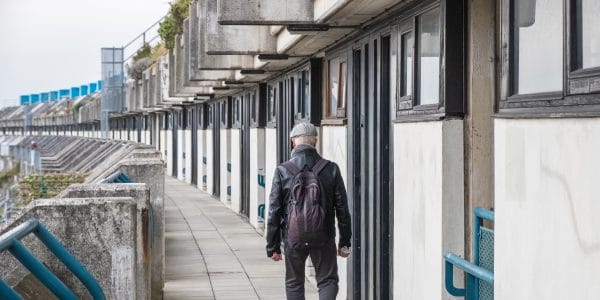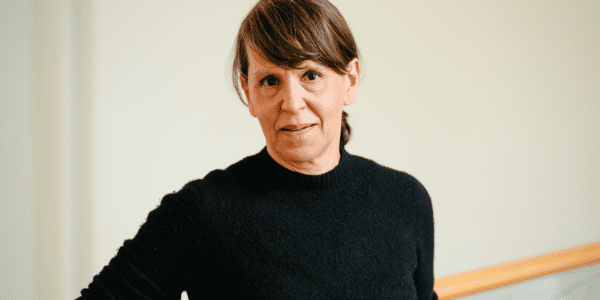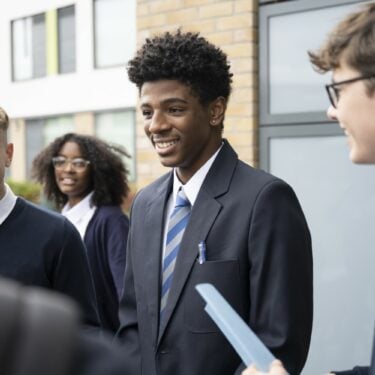
10/08/21
4 min read
Findings from the Nuffield Foundation’s Well-being, people and places series are immaculately well-timed. The pandemic and lockdown have led to a realisation of the importance of social connection and sparked new interest in the issue among researchers and policy-makers.
Two Nuffield-funded projects – led by Peter Howley and Mirko Moro on the effect of immigration and well-being and Miguel Ramos and Miles Hewstone on the impact of ethnic diversity on well-being and health – deliver a compelling message that, while distrust and conflict may arise between host communities and newcomers, this dies away. Integration is an inevitable process, but it is one that often takes time. In the process of waiting, new arrivals miss out, with many suffering discrimination and isolation. And as the projects highlight, settled people from majority groups suffer consequences too, including for their mental and physical health.
How can the process of integration be expedited? What measures could be taken to reduce social divides, intergroup tensions and loneliness? The answers lie in targeted policy interventions covering key areas of social and economic life.
The clue to understanding integration is in the present, not our past
The projects start from the question that has puzzled so many social scientists and policy analysts: why, when successive studies have shown the economic and social benefits of immigration, do many people believe its impact to be negative?
Both projects contend that it is underlying propensities which cause people to worry about immigration. Instead of mixing with new arrivals of different faiths and ethnicities, human beings have a hard-wired ‘people like us’ preference. Psychology-based theories of this kind are currently popular. Jon Yates delivers a persuasive exposition in his book Fractured making copious use of the proverb ‘birds of a feather flock together’.
The ‘people like us’ argument sees anti-immigration sentiment as instinctive, explaining hostility, lack of trust and discrimination towards newcomers across time, nations and communities. But is the perspective useful or relevant?
There’s much more solid evidence that people dislike rapid change, in their lives, to their surroundings and their communities. In Perceptions and Reality: public attitudes to immigration Bobby Duffy describes how people in communities that have experienced little change are more hostile to inward migration than those already in ethnically diverse areas. People also worry about competition for jobs, schools, health provision, welfare and other public services. These concerns are more rooted in poor public investment and austerity than survival instinct.
The projects’ somewhat pessimistic discourse is counterbalanced by an evidence-based view of change. They show how intergroup relations, conflict and collaboration are dynamic, not static: negative feelings erode in time as people see newcomers as people like them; levels of trust develop, host communities experience the benefits of diversity and their well-being improves.
This observation shows that change in a positive direction is possible, and it’s happening in our cities, towns and villages. Since the 2016 EU referendum, successive polls and surveys have found immigration falling in the chart of political concerns, and is increasingly seen as more positive than negative. Surveys find an increasing number of people have friends from different ethnic backgrounds to their own. So, integration is happening, surely but somewhat slowly.
Five steps to accelerate integration
Measures to bring about better and faster integration need to be targeted at key institutions and areas of life and through policies to engender meaningful mixing and relationships of trust.
- Workplaces offer opportunities for social integration and are often more diverse than the communities in which people live. Yet migrants are often concentrated in particular industries and roles. Employers have done little to actively facilitate integration. Yet workplace integration initiatives could have wider benefits, particularly in view of the projects’ findings about trust – a quality of many workplace relationships.
- Schools are seen as natural places for integration, enabling mixing at an early and impressionable age when children don’t see difference in negative terms. Schools that are diverse do integration very well. But parental choice and private provision have reduced diversity in many schools. There are some great projects involving linking and sharing premises, but again more needs to be done.
- Even when neighbourhoods and towns are mixed, people from different backgrounds can lead separate and parallel lives. Development and planning policies need to give consideration to the design of housing, neighbourhoods and town centres to make it easier for people from different backgrounds to mix. Policies to promote volunteering can also help – again because they involve trust. There could also be greater support for clubs and societies on topics that cross divides, for example through government grants.
- Immigration policies often claim adherence to public opinion. However, this is usually at the level of principles, such as reducing numbers, and is often inaccurate. Yet policies which allow temporary migration create churn in communities and inhibit integration. Policy makers should consider how length of stay, temporary vs permanent routes, and access to services help or hinder settlement and integration.
- Finally, English language is important for integration but it is not always easy for people to learn. Much provision is delivered through colleges which people cannot always travel to easily and there is no permanent source for learning in community settings. Funding for learning at work and for more provision in locations such as schools and libraries could help people reach higher levels of fluency and enhance their ability to mix.
The essential message from the Nuffield Foundation’s Well-being, people and places projects is that attitudes are dynamic and that change can happen. This means that we have the capability to speed up integration, and to improve the lives of people affected by hostility and distrust, rather than waiting for attitudes to change over time. These findings have particular relevance and value for policy making aimed at building better, more connected, societies for post-pandemic Britain.
About the author
 Dr Heather Rolfe
Dr Heather Rolfe
Dr Heather Rolfe is Director of Research and Relationships at British Future, a think tank focused on immigration, integration, race and identity. Heather has carried out research on immigration since the 1990s, specialising in the impact of free movement on the labour market and on public attitudes. Before joining British Future in April 2021 she was Head of Research at Demos. She previously led the social policy team at the National Institute of Economic and Social Research.




















































